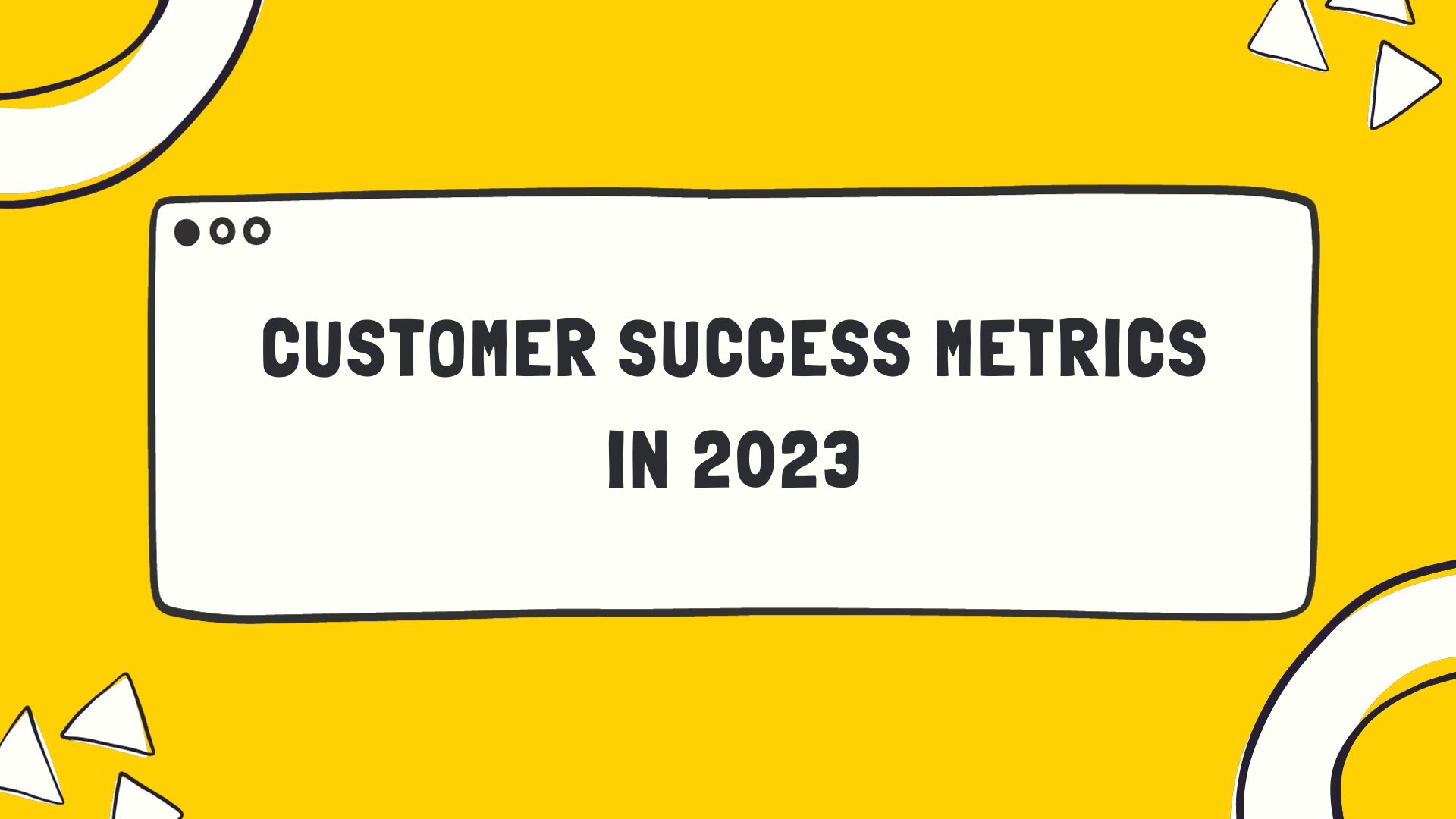Are you struggling to achieve the desired growth in your SaaS startup? One key reason could be not fully understanding or utilizing customer success metrics effectively. This blog post will guide you on the essential customer success measurements and teach you how to optimize them for maximum business performance.
Keep reading, and let’s gear up your strategies together!
Key Takeaways
- Customer success metrics are crucial for SaaS startups to measure the effectiveness of their strategies and customer satisfaction levels.
- Key customer success metrics include customer churn rate, monthly recurring revenue (MRR), net promoter score (NPS), customer lifetime value (CLV), and first contact resolution rate.
- To measure and optimize these metrics, identify relevant ones, set benchmarks and goals, use customer feedback effectively, and regularly monitor and adjust your strategies.
Understanding Customer Success Metrics
Customer success metrics are essential for SaaS startups as they help measure the effectiveness of their customer support and overall business performance.
Definition
Customer success metrics, in the realm of Software as a Service (SaaS) startups, are fundamental assessments or Key Performance Indicators (KPIs) designed to gauge the effectiveness of strategies and satisfaction levels of customers.
These measurements underpin successful product interactions and are crucial in driving growth. Metrics, such as Monthly Recurring Revenue (MRR), provide an immediate snapshot of business progression while others offer insights into customer ‘health,’ blending financial status with user numbers for comprehensive analysis.
As these indicators provide valuable data that helps shape future product decisions and improve service offerings, their importance cannot be overstated.
Importance
Monitoring customer success metrics holds paramount significance for SaaS startups. It furnishes insightful data about user satisfaction, playing a vital role in shaping the product roadmap.
Additionally, these key performance indicators serve as an accurate reflection of the effectiveness of chosen strategies. As a strategic tool, they give you a clear picture of your growth through monthly recurring revenue (MRR) – a critical measure relied upon heavily by all SaaS entities.
Furthermore, formulating customer “health” score allows companies to measure success on multiple factors including financial health and customer count. Hence, dedicating resources to understand and optimize these important metrics can greatly enhance customers’ ability to find success with your product or service.
Check out few Customer Success software.
Top Customer Success Metrics for SaaS Startups
SaaS startups can measure their customer success through key metrics such as customer churn rate, monthly recurring revenue, net promoter score, customer lifetime value, and first contact resolution rate.
Customer Churn Rate
Customer churn rate stands as a key performance indicator for SaaS startups. This metric is essentially the percentage of subscribers who discontinue their subscriptions within a given time period.
A high churn rate can impact your monthly recurring revenue and, ultimately, the growth of your business. It’s important to identify reasons why customers might leave so proactive strategies can be put in place to retain them, such as action-triggered emails or improved customer service efforts.
Analyzing this metric furnishes you with valuable insight into user satisfaction levels that should guide product development decisions moving forward.
Monthly Recurring Revenue
Monthly recurring revenue (MRR) is a crucial customer success metric for SaaS startups. It provides a snapshot of growth and is relied upon by all successful companies in this industry.
By tracking MRR, businesses can assess their revenue streams on an ongoing basis and identify areas where improvements can be made. This metric allows SaaS startups to measure the effectiveness of their strategies in driving customer adoption and retention, as well as monitor the overall health of their business.
By focusing on optimizing monthly recurring revenue, SaaS startups can work towards sustainable growth and long-term success.
Net Promoter Score
The Net Promoter Score (NPS) is a crucial customer success metric for SaaS startups. It measures the likelihood that customers would recommend your product or service to others on a scale of 0-10.
Customers who respond with scores of 9 or 10 are considered promoters, while those who score 6 or below are detractors. The NPS is calculated by subtracting the percentage of detractors from the percentage of promoters.
A high NPS indicates satisfied and loyal customers, which can lead to business growth and increased revenue. Monitoring and improving your NPS can help you identify areas for improvement and ensure that you’re consistently providing value to your customers.
Customer Lifetime Value
Measuring and optimizing customer success metrics is essential for the growth and performance of SaaS startups. One key metric to focus on is Customer Lifetime Value (CLV). CLV measures the total revenue generated by a customer throughout their entire relationship with your business.
By understanding this metric, you can determine how valuable each customer is over time and make informed decisions about marketing, sales, and product development strategies. Calculating CLV involves considering factors such as average purchase value, purchase frequency, and customer lifespan.
By maximizing CLV, you can increase revenue growth and improve overall business performance in the long run.
First Contact Resolution Rate
The first contact resolution rate is a crucial customer success metric for SaaS startups. It measures the percentage of customer inquiries or issues that are resolved during their initial interaction with support or customer service.
A high first-contact resolution rate indicates efficient and effective support, minimizing the need for customers to reach out repeatedly for the same issue. By prioritizing prompt and satisfactory resolutions, SaaS startups can improve customer satisfaction, reduce churn, and build long-term relationships with their customers.
How to Measure and Optimize Customer Success Metrics
To effectively measure and optimize customer success metrics, start by identifying the relevant metrics for your SaaS startup. Set benchmarks and goals to track progress and use customer feedback to gain insights.
Regularly monitor and adjust your strategies to ensure ongoing improvement in customer success.
Identify relevant metrics
To effectively measure and optimize customer success metrics in a SaaS startup, it is important to identify the relevant metrics that align with your business goals. Here are some key metrics to consider:
- Customer Churn Rate: Measure the percentage of customers who cancel their subscriptions within a given time period.
- Monthly Recurring Revenue (MRR): Track the predictable revenue generated from subscription fees on a monthly basis.
- Net Promoter Score (NPS): Assess customer loyalty and satisfaction by asking them how likely they are to recommend your product or service.
- Customer Lifetime Value (CLTV): Determine the average revenue generated from a customer over their entire relationship with your company.
- First Contact Resolution Rate: Measure the percentage of customer inquiries or issues resolved during their first interaction with support.
Set benchmarks and goals
To measure and optimize customer success metrics in a SaaS startup, it is important to set benchmarks and goals. This provides a framework for evaluating performance and progress. Here are some key steps to follow:
- Identify specific metrics that align with your business objectives and customer success goals.
- Determine benchmarks by researching industry standards or analyzing data from successful competitors.
- Set realistic goals that are challenging yet achievable, based on your current performance and desired outcomes.
- Break down larger goals into smaller milestones to track progress over time.
- Communicate these benchmarks and goals to your team, ensuring everyone is aligned and working towards the same objectives.
Use customer feedback
Customer feedback is an essential tool for measuring and optimizing customer success metrics in a SaaS startup. It provides valuable insights into user satisfaction and helps guide product roadmap decisions. Here are some key ways to use customer feedback effectively:
- Conduct regular surveys to gather feedback on the overall experience with your product or service.
- Implement a system for customers to provide feedback directly within your application or platform.
- Monitor online reviews and social media mentions to understand customer sentiment.
- Engage in one-on-one interviews or focus groups to gather more in-depth feedback.
- Analyze support tickets and inquiries to identify common pain points and areas of improvement.
Monitor and adjust regularly
To ensure the effectiveness of your customer success metrics, it is important to monitor and adjust them regularly. Here are some key strategies for staying on top of your metrics:
| Strategy | Description |
|---|---|
| Regularly review your metrics | Set a schedule for reviewing metrics to track progress and identify trends. |
| Use real-time data | Employ tools providing real-time data to make timely adjustments and address issues. |
| Identify outliers | Pay attention to outliers in metrics to gain insights and identify improvement areas. |
| Gather feedback | Continuously collect customer feedback to understand their experience and satisfaction. |
| Collaborate with other teams | Work with teams like sales and product development to align strategies based on feedback and metrics. |
| Stay agile | Be prepared to adjust strategies quickly in response to changing needs and market trends. |
Conclusion
In conclusion, measuring and optimizing customer success metrics is crucial for the growth and success of SaaS startups. By tracking key performance indicators like churn rate, monthly recurring revenue, and net promoter score, startups can gain valuable insights into user satisfaction and make informed decisions to improve their products and services.
Regular monitoring, setting benchmarks, and utilizing customer feedback are essential steps in this process. With a proactive approach to measuring customer success metrics, SaaS startups can enhance user engagement, increase retention rates, and drive revenue growth.
FAQs
1. Why is it important to measure customer success metrics in a SaaS startup?
Measuring customer success metrics helps a SaaS startup understand how well they are meeting their customers’ needs and can identify areas for improvement to ensure long-term business success.
2. What are some common customer success metrics that should be measured?
Common customer success metrics include customer retention rate, churn rate, net promoter score (NPS), customer satisfaction (CSAT) scores, and average revenue per user (ARPU).
3. How can I optimize customer success metrics in my SaaS startup?
To optimize customer success metrics, focus on providing excellent customer support, regularly communicate with customers to understand their needs and challenges, provide valuable resources and training materials, and continuously evaluate and improve your product or service based on feedback.
4. Can measuring and optimizing customer success metrics lead to increased revenue?
Yes, by ensuring high levels of customer satisfaction and reducing churn rates through effective measurement and optimization of these metrics, a SaaS startup can enhance its reputation, attract new customers through referrals or positive reviews, increase upselling opportunities to existing customers, leading to increased revenue.
5. How often should I measure my SaaS startup’s performance against these metrics?
It is recommended to measure your SaaS startup’s performance against these metrics regularly – monthly or quarterly – as trends over time will provide valuable insights into the effectiveness of your strategies and efforts in delivering exceptional value to your customers.




